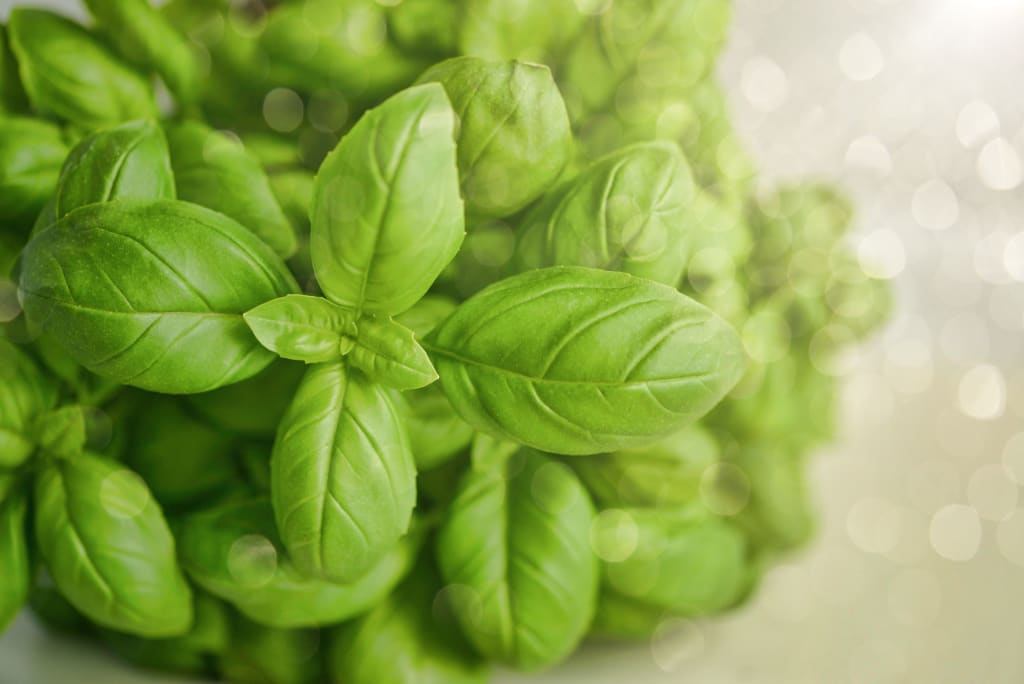The Mighty Benefits of Basil: Exploring Its Medicinal and Nutritional Value
Harnessing the Healing Power of Basil: Exploring its Medicinal and Nutritional Marvels

Introduction
Basil, with its vibrant green leaves and distinct aroma, is not just a popular herb used in culinary delights but also a powerhouse of health benefits. This versatile herb, scientifically known as Ocimum basilicum, has been revered for centuries in various traditional medicine practices for its medicinal properties. In this blog post, we delve into the mighty benefits of basil, exploring its rich history, uncovering its nutritional value, and examining its potential to enhance our overall well-being.
A Herb Steeped in History
Basil has a long and storied history, dating back thousands of years. Originating in India, it quickly spread throughout the world due to its culinary and medicinal value. Ancient cultures revered basil for its believed protective and healing properties, using it in religious ceremonies, as a symbol of love and fertility, and as a natural remedy for various ailments.
Nutritional Value of Basil
Basil is not only a flavorful herb but also a nutrient-dense one. It is rich in vitamins A, K, and C, as well as minerals like potassium, calcium, and magnesium. These essential nutrients contribute to overall health and support various bodily functions. Basil is also a good source of antioxidants, which help protect the body against oxidative stress and reduce inflammation.
Medicinal Properties of Basil
Anti-Inflammatory and Antioxidant Effects: Basil contains potent anti-inflammatory compounds, such as eugenol and rosmarinic acid. These compounds help reduce inflammation in the body, which is linked to chronic diseases like heart disease, arthritis, and certain types of cancer. Basil's high antioxidant content also plays a role in neutralizing harmful free radicals and protecting cells from damage.
Digestive Health: Basil has been traditionally used to support digestive health. It can help relieve digestive discomfort, including bloating and gas. Basil's essential oils can stimulate the production of digestive enzymes, enhancing the breakdown and absorption of nutrients. Additionally, basil has antimicrobial properties that may help fight off harmful bacteria in the gut.
Respiratory Support: Basil is known for its expectorant properties, making it beneficial for respiratory health. It can help relieve coughs, congestion, and asthma symptoms. The volatile oils in basil, such as eucalyptol, help relax the muscles of the respiratory system and promote easier breathing.
Stress Relief and Mental Well-being: Basil has a calming effect on the nervous system and is often used as an adaptogen, helping the body cope with stress. It is believed to have mood-enhancing properties, promoting relaxation and mental clarity. Basil's aroma is also known to uplift the spirits and ease anxiety.
Cardiovascular Health: Basil may have cardiovascular benefits, including supporting heart health and reducing the risk of heart disease. Some studies suggest that basil extracts can help lower cholesterol levels, regulate blood pressure, and prevent blood clot formation. These effects contribute to a healthier cardiovascular system.
Incorporating Basil Into Your Diet
Basil is a versatile herb that can be enjoyed in various ways. It adds a fresh and aromatic touch to salads, soups, sauces, and pasta dishes. Basil leaves can be used in pesto, infused into oils, or made into herbal teas. Additionally, basil can be incorporated into desserts and beverages for a unique flavor profile. Growing your own basil plant at home is also a rewarding way to have a constant supply of this beneficial herb.
Precautions and Considerations
While basil is generally safe for consumption, it is important to be aware of potential allergies or interactions with certain medications. Individuals with allergies to other herbs in the mint family, such as mint or oregano, may also be allergic to basil. If you have any underlying medical conditions or are taking medications, it is advisable to consult with a healthcare professional before incorporating basil into your routine.
Conclusion
Basil's impressive array of health benefits makes it a valuable addition to any well-rounded diet. From its anti-inflammatory and antioxidant properties to its digestive, respiratory, and cardiovascular support, basil offers numerous advantages for overall well-being. Embrace the mighty power of basil by incorporating it into your meals, enjoying it as a herbal tea, or even growing your own basil plant. Let this remarkable herb enhance your culinary creations and contribute to your journey of wellness. With its delightful flavor and remarkable medicinal value, basil truly deserves its status as a mighty herb.
About the Creator
Enjoyed the story? Support the Creator.
Subscribe for free to receive all their stories in your feed. You could also pledge your support or give them a one-off tip, letting them know you appreciate their work.






Comments
There are no comments for this story
Be the first to respond and start the conversation.